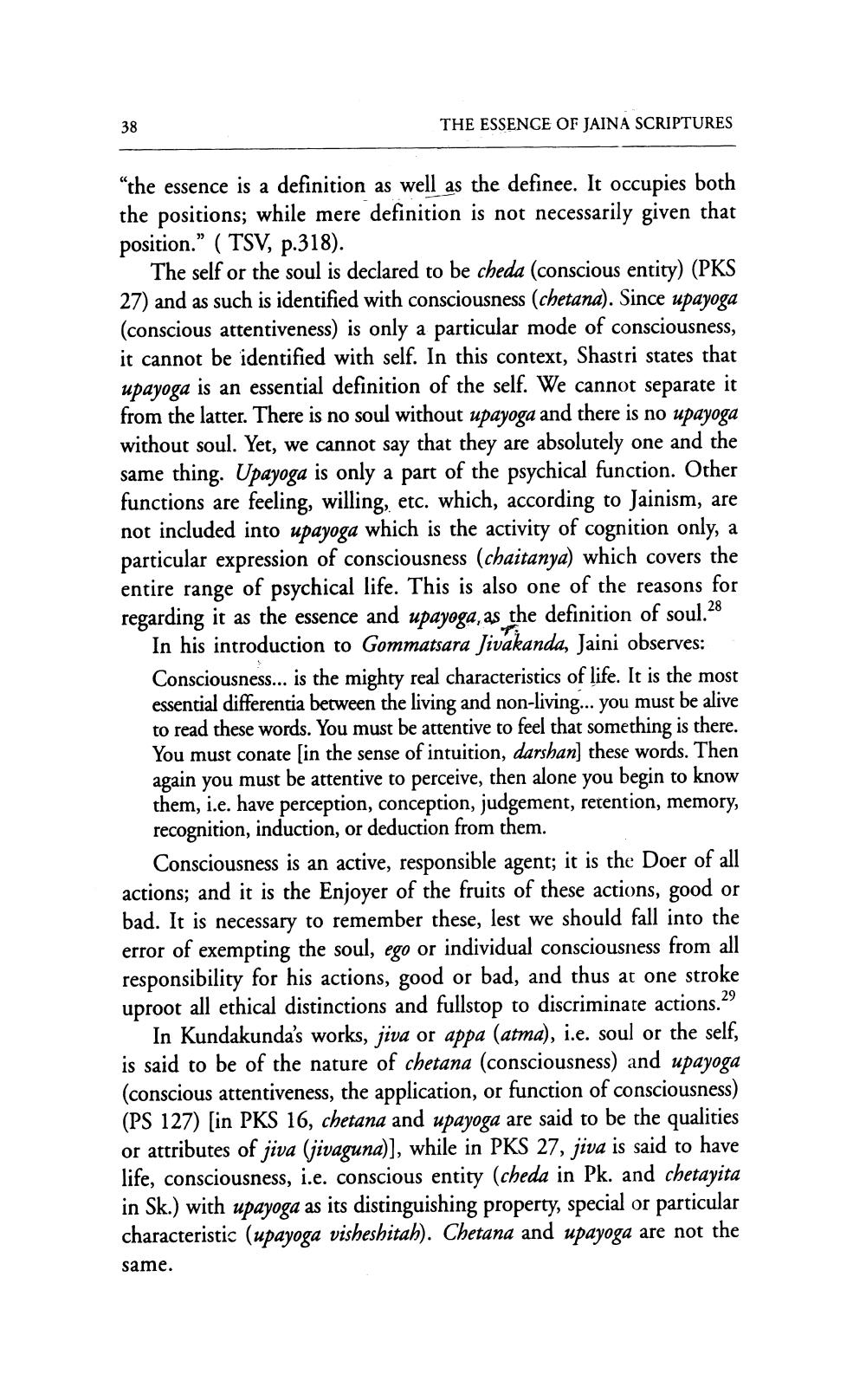________________
38
THE ESSENCE OF JAINA SCRIPTURES
"the essence is a definition as well as the definee. It occupies both the positions; while mere definition is not necessarily given that position." (TSV, p.318).
The self or the soul is declared to be cheda (conscious entity) (PKS 27) and as such is identified with consciousness (chetana). Since upayoga (conscious attentiveness) is only a particular mode of consciousness, it cannot be identified with self. In this context, Shastri states that upayoga is an essential definition of the self. We cannot separate it from the latter. There is no soul without upayoga and there is no upayoga without soul. Yet, we cannot say that they are absolutely one and the same thing. Upayoga is only a part of the psychical function. Other functions are feeling, willing, etc. which, according to Jainism, are not included into upayoga which is the activity of cognition only, a particular expression of consciousness (chaitanya) which covers the entire range of psychical life. This is also one of the reasons for regarding it as the essence and upayoga, as the definition of soul.28 In his introduction to Gommatsara Jivakanda, Jaini observes: Consciousness... is the mighty real characteristics of life. It is the most essential differentia between the living and non-living... you must be alive to read these words. You must be attentive to feel that something is there. You must conate [in the sense of intuition, darshan] these words. Then again you must be attentive to perceive, then alone you begin to know them, i.e. have perception, conception, judgement, retention, memory, recognition, induction, or deduction from them.
Consciousness is an active, responsible agent; it is the Doer of all actions; and it is the Enjoyer of the fruits of these actions, good or bad. It is necessary to remember these, lest we should fall into the error of exempting the soul, ego or individual consciousness from all responsibility for his actions, good or bad, and thus at one stroke uproot all ethical distinctions and fullstop to discriminate actions.29 In Kundakunda's works, jiva or appa (atma), i.e. soul or the self, is said to be of the nature of chetana (consciousness) and upayoga (conscious attentiveness, the application, or function of consciousness) (PS 127) [in PKS 16, chetana and upayoga are said to be the qualities or attributes of jiva (jivaguna)], while in PKS 27, jiva is said to have life, consciousness, i.e. conscious entity (cheda in Pk. and chetayita in Sk.) with upayoga as its distinguishing property, special or particular characteristic (upayoga visheshitah). Chetana and upayoga are not the
same.




